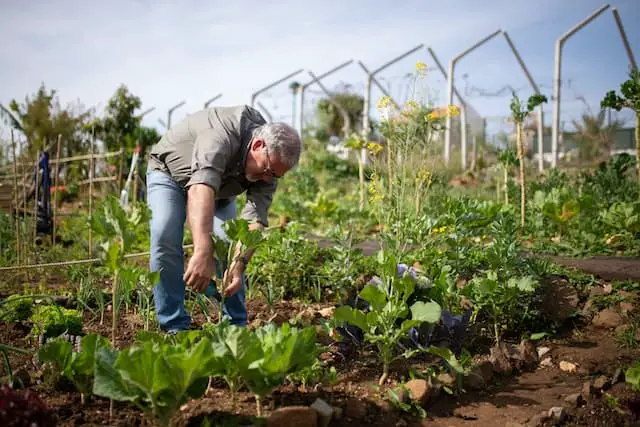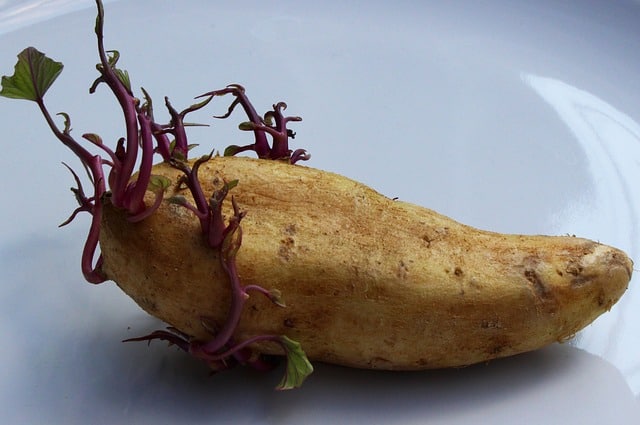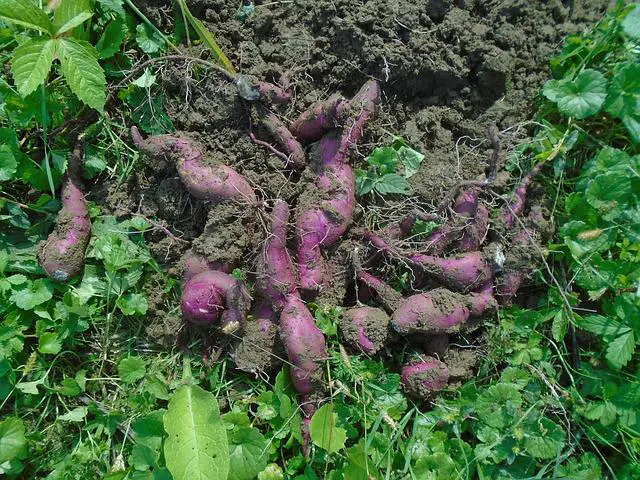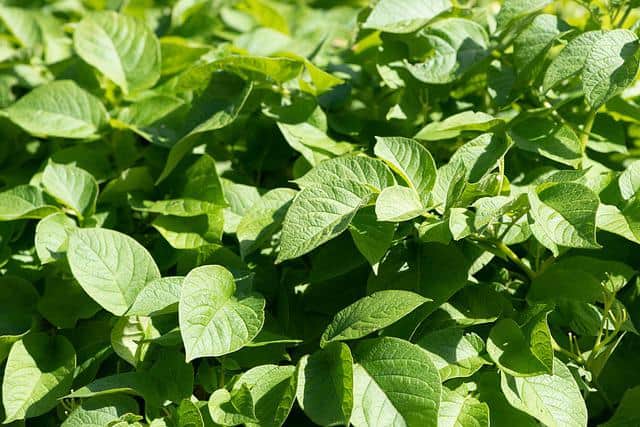Are potato leaves poisonous or dangerous to eat? It’s an important question for anyone who is growing their own fruits and vegetables at home – you don’t want to waste anything that could make a tasty and nutritious meal, but you definitely don’t want to find yourself feeling sick or unwell.
Read ahead to get the full story on whether potato leaves are actually edible or poisonous so that you know what to do with this part of that plant – and whether you should be worried if you find out your pet or child has tried to munch on them!
Are Potato Leaves Poisonous?

If you’re thinking about ways to make the most of the vegetables that you’re growing at home, then you will obviously be looking at the leaves and stems as well. When it comes to potatoes, though, these should definitely be thrown away.
The leaves of most potatoes are actually poisonous as they contain toxic components that can cause you to become very unwell. They can even be deadly in large quantities.
Poisonous compounds are mainly found in the leaves of the plant, but they are also present in the stems and green tubers, so these should not be eaten by humans – or most animals!
Potatoes themselves are so ubiquitous and delicious that most people don’t even think twice about how dangerous other parts of the plant might be. They are surprisingly highly inedible!
You might have read some recipes that use potato leaves but these will not be using the leaves of regular potatoes. It is only the leaves of sweet potatoes that are safe for human consumption – not traditional “Irish” potatoes.
What Makes Potato Leaves Poisonous?
The reason why potato leaves are poisonous is the toxic compounds that are present inside them. The most toxic element in the plant is called solanine, and it can be found in various species of the nightshade family, including potatoes, eggplants, and tomatoes.
Solanine is a glykoalkoid, which is a kind of chemical compound that is often toxic to humans. If you are interested, you can find out more about this fascinating compound from the literature on Science Direct.
Potato plants contain a large amount of solanine as a natural defense mechanism, that helps to keep insects and animals from eating the plant’s leaves and stems.
What Happens If You Eat Potato Leaves?

If you do eat the leaves of a potato, the solanine content can cause you to become very sick. There have even been some recorded fatalities as a direct result of solanine poisoning. Deadly cases are certainly rare, but even a mild level of the toxin can be highly unpleasant.
The symptoms of solanine poisoning include:
- Headaches
- Fever
- Stomach pain
- Vomiting
- Diarrhea
- Slow pulse
- Shallow breathing
If you have consumed some potato leaves and are feeling unwell, then you should get in touch with a medical professional as soon as possible. Although it is uncommon, solanine poisoning can be a cause for concern and it should be addressed appropriately.
What Parts Of A Potato Plant Are Poisonous?
It’s not just the leaves of the potato that contain solanine – it’s also present in the stems and some parts of the potatoes themselves.
You can usually identify the presence of solanine by its bitter flavor, but it is best to try and avoid any parts of the plant where it will naturally build up.
The stems and leaves generally contain the highest concentration of solanine, although it will also develop in particularly green potatoes. You should cut away any green parts of your potatoes, and cut out the “eyes” that start to form as they get older as well.
Are Sweet Potato Leaves Edible?

Not all kinds of potatoes have toxic and poisonous leaves, though. In fact, the leaves of the sweet potato are not only edible but tasty and quite nutritious too!
They do have quite a strong flavor – with a bit of bitterness to them – but many people love the taste, and they can make a fantastic addition to a stir fry or even be enjoyed raw and finely chopped as part of a salad.
Sweet potato leaves are similar to other bitter leaves (like collards, kale, spinach, or broccoli rabe) and can be a great alternative for new and interesting recipes. They are rich in antioxidants, fiber, and many nutrients that are great for your health – including vitamin B, iron, calcium, zinc, and protein.
More on the potato plant: How to Speed up Potato Sprouting
Summary
So, are potato leaves poisonous? Yes, they are. They are not fit to be eaten by humans and can even be deadly if they are consumed in large amounts.
Potato leaves contain the toxic chemical compound solanine which can cause solanine poisoning if eaten. Solanine poisoning has a lot of unpleasant symptoms, including diarrhea, vomiting, fever, stomach pain, and more. Extreme cases have even led to fatalities.
It is not just the leaves of the potato plant that contain solanine, however, as it is also present in the stems, “eyes”, and green tubers.
Frequently Asked Questions
Can you eat the green leaves from potatoes?
You cannot eat the green leaves of traditional “Irish” potatoes. These potato leaves are poisonous and they can cause serious health problems if consumed by humans, or even most animals. Sweet potato leaves, on the other hand, are edible and quite nutritious, but they are a very different plant.
Which part of the potato plant is poisonous?
The leaves and stems of a potato plant are both poisonous, but some parts of the tubers themselves can be toxic as well. The poisonous compound solanine builds up in green tubers and the eyes of potatoes, as well as in all of the leafy parts of the plant.
Is potato vine poisonous to humans?
Any part of a potato plant, besides the healthy, white potatoes themselves, is generally toxic and poisonous to humans. The vines and flowers that some potato plants grow are almost always dangerous if they are consumed and should be carefully avoided.

Hey, I’m Lisa and I’ve been an avid gardener for over 30 years. I love writing, talking and living in the garden! Feel free to connect with me on my socials below

